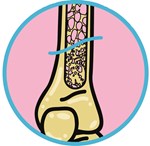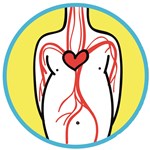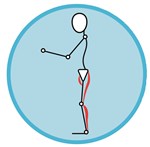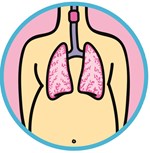For some, supported walking can have many benefits on their health and well-being. Below is the scale of walking aids based on the level of support given.

It is not always possible for every child/young person to be supported to walk. There are different types of walking aids available. They can support many different needs. These can be explored and discussed with your Physiotherapist.
 Bone Density
Bone DensityWalking increases bone density and reduces the risk of fractures - Eating well and weight bearing, (through standing or walking) helps the bones to develop. Doing regular activity also helps. Research shows that walking improves the bone density in the pelvis and legs of children with Cerebral Palsy.
 Circulation
CirculationWalking enhances circulation and blood pressure - Walking helps to keep the heart healthy and strong. It also helps to improve mood and overall feelings of wellbeing. Walking helps to reduce swelling in the legs and feet.
 Contracture Prevention
Contracture PreventionWalking stretches muscles, preventing the onset of contractures - Walking provides ‘feedback’ to young developing muscles and joints. It stretches the muscles through active movement. Walking with the correct support will allow muscles to get stronger and help prevent shortening/contractures.
 Respiratory
RespiratoryWalking improves breathing and ability to participate in exercises - When walking a greater demand is placed on the body for oxygen as the muscles need oxygen to work. When walking it is necessary to have to take bigger breaths. This works the breathing muscles and over time they become stronger. Regular walking increases fitness and the heart becomes stronger too.
 Interaction
InteractionWalking enables kids to interact and move around with their peers - Supported walking allows children to keep up with their friends. They can choose where they wish to go without an adult moving them. Eye-to-eye contact improves confidence and self-esteem. They can carry out similar activities with their friends.
 Wellbeing
WellbeingWalking improves wellbeing, alertness and sleep patterns - Regular walking improves sleep, reduces tiredness and increases alertness. Walking is a form of physical activity. It promotes endorphin release. This improves mood and general feelings of wellbeing.
 Digestion
DigestionWalking helps with digestion and toileting - This is achieved through a combination of gravity and using the stomach muscles more efficiently.
Walking increases muscle strength and endurance - Walking involves the muscles actively contracting and relaxing to move the legs. The muscles become stronger as we repeat the pattern.